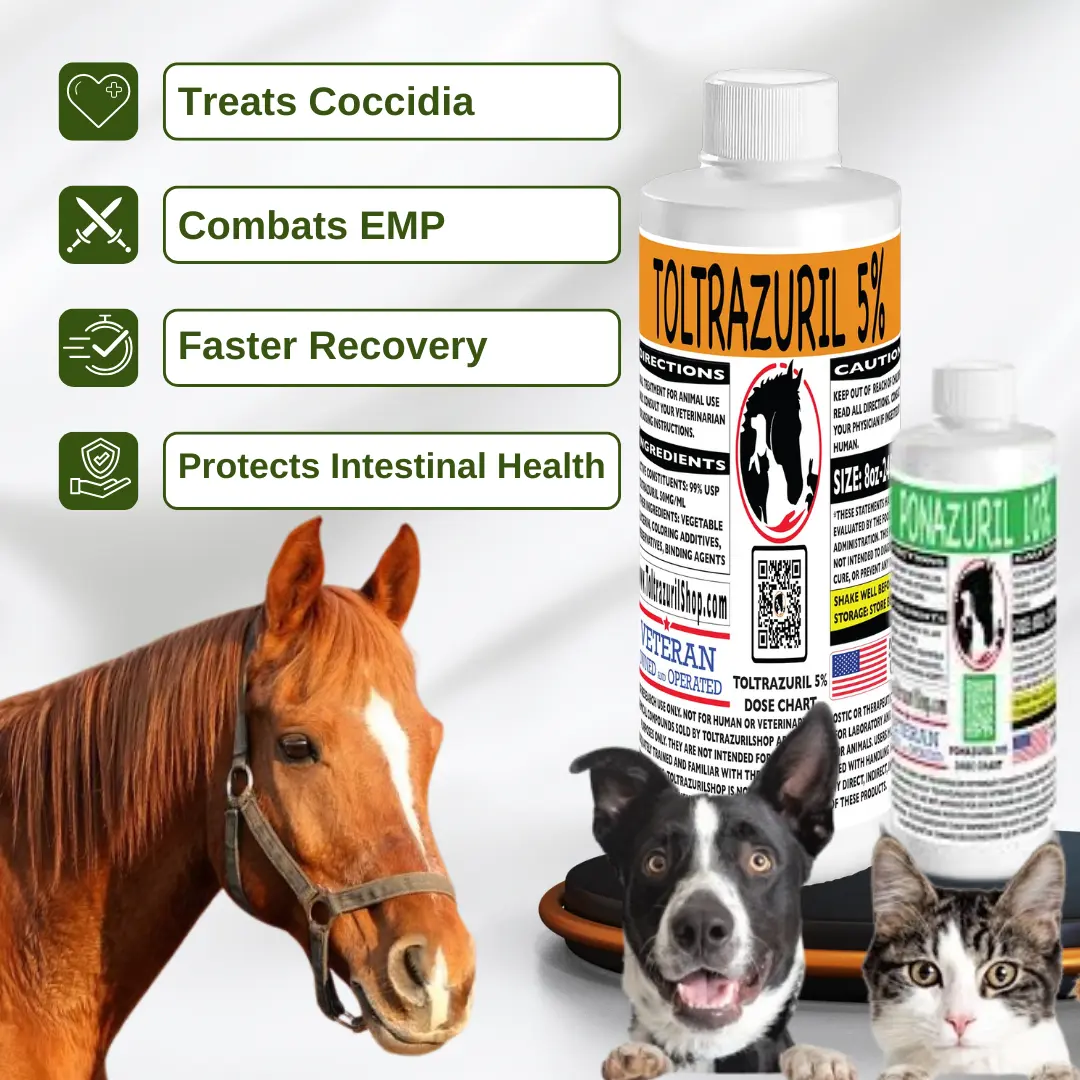No products in the cart.
Coccidia in Dogs Zoonotic Risk: Facts & Prevention
Is Coccidia in Dogs Zoonotic?
Coccidia are microscopic parasites that infect the intestinal tract of many animals, including dogs. Pet owners often worry whether these parasites can be passed to humans and cause illness. While the word “zoonotic” refers to diseases that can jump from animals to people, not all parasites in dogs fit this category. Understanding which species of coccidia affect dogs, and whether they can cross the species barrier, is essential for protecting both canine and human health.
Can Coccidia Be Transmitted from Dogs to Humans?
Coccidia that infect dogs are typically Cystoisospora species, which are host-specific parasites. This means they are adapted to live only in dogs and cannot survive or cause disease in humans. Because of this, the coccidia found in dogs are not considered zoonotic and pose no direct risk to people. While some other protozoan parasites are transmissible from animals to humans, the species that cause canine coccidiosis are not among them.
The Types of Coccidia That Affect Dogs and Their Zoonotic Risk
Dogs can be infected with several Cystoisospora species, including C. canis, C. ohioensis, C. neorivolta, and C. burrowsi. All of these are strictly host-specific and only affect canines. There is no evidence that these species can infect humans. However, dogs can sometimes carry other coccidian-like organisms, such as Cryptosporidium, which can infect both humans and animals. While this is rare in dogs, it is worth noting for people with compromised immune systems.
Coccidia Transmission to Humans
Why Coccidia from Dogs Does Not Pose a Major Zoonotic Risk
The life cycle of canine Cystoisospora species depends on a dog ingesting sporulated oocysts from contaminated environments or intermediate hosts like rodents. These parasites have evolved to infect only dogs, so even if a human ingested the oocysts, infection would not occur. This host specificity explains why canine coccidiosis is not classified as a zoonotic disease.
Rare Cases of Cross-Species Transmission: What You Should Know
Although Cystoisospora from dogs cannot infect humans, rare cases of cross-species transmission involve other protozoa such as Cryptosporidium. This parasite is capable of infecting multiple animal species, including humans, and may sometimes be found in a dog’s feces. Such cases are uncommon, but they highlight the importance of maintaining good hygiene around all animal waste, especially for young children, the elderly, and immunocompromised individuals.
Preventing Zoonotic Transmission of Coccidia
Best Practices for Preventing Zoonotic Transmission of Coccidia
Even though canine coccidia are not a zoonotic threat, keeping parasite levels low benefits both pets and the household environment. Key practices include:
- Promptly picking up and disposing of dog feces before oocysts can mature in the environment.
- Keeping dogs from hunting small animals or eating raw prey.
- Maintaining a clean living space for pets, especially in kennels or breeding facilities.
- Following veterinary advice on parasite prevention and treatment.
Hygiene Tips to Reduce the Risk of Coccidia Transmission
Good hygiene habits protect against all fecal-borne pathogens. Always wash your hands thoroughly after handling pets or cleaning up after them. Wear gloves when dealing with contaminated soil or litter. Clean food and water bowls daily, and regularly disinfect areas where your dog eliminates. Steam cleaning and bleach solutions are effective at killing many parasite eggs and oocysts in the environment.
Coccidia in Other Animals and Zoonotic Risks
Do Other Animals Carry Coccidia and Can It Affect Humans?
Yes, many other species carry their own forms of coccidia. Poultry, cattle, cats, and wild animals each have specific coccidian parasites. Most of these are also host-specific and cannot infect humans. However, some protozoa related to coccidia—such as Toxoplasma gondii from cats and Cryptosporidium from multiple species—can infect people and are considered significant zoonotic pathogens.
How Different Species of Coccidia May Pose Varying Zoonotic Risks
The zoonotic risk depends entirely on the parasite species. Host-specific coccidia, like those found in dogs, are harmless to humans. In contrast, zoonotic protozoa can cross species barriers and cause illness in people. Understanding these differences helps pet owners take appropriate precautions without unnecessary worry.
FAQs
Q: Can I get coccidia from my dog?
A: No, canine coccidia are host-specific and cannot infect humans.
Q: Which protozoa from dogs can affect humans?
A: While canine coccidia cannot infect people, Cryptosporidium—occasionally found in dogs—can be zoonotic.
Q: How can I prevent coccidia in my dog?
A: Practice good sanitation, prevent hunting of wild prey, and follow your vet’s parasite prevention recommendations.
Q: Is coccidiosis more dangerous for puppies?
A: Yes, puppies are more susceptible to illness from coccidia due to their developing immune systems.
Q: How long can coccidia survive in the environment?
A: Sporulated oocysts can survive for months in moist, shaded areas, making sanitation crucial.
References
- CDC: Cryptosporidiosis Prevention
- Merck Veterinary Manual: Coccidia in Dogs
- AVMA Zoonotic Disease Guidelines
Next Steps:
For more on related protozoan diseases, see our upcoming article on Toxoplasma gondii and Zoonotic Risks in Cats.


